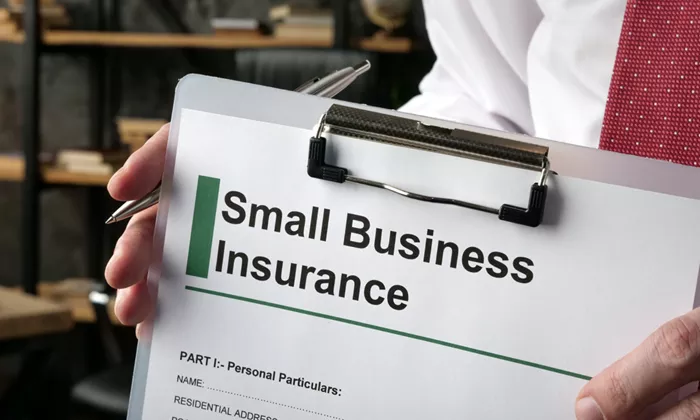Recreational vehicles (RVs) offer the freedom to travel while bringing the comforts of home on the road. Whether you’re exploring national parks, visiting family, or living full-time in your RV, it’s essential to have the right insurance coverage. But how do you ensure you’re getting the best RV insurance quote for your needs? In this article, we’ll break down everything you need to know about obtaining the best quote and understanding how RV insurance works.
Why Is RV Insurance Important?
Before diving into the specifics of RV insurance quotes, it’s essential to understand why RV insurance is so critical. When you’re on the road, your RV is exposed to various risks, including accidents, weather events, theft, and other unforeseen circumstances.
RV insurance helps protect you and your investment in these situations. Without it, you could be left facing significant financial burdens if something happens to your RV. Just like car insurance, RV insurance provides peace of mind by covering damage, theft, and liability.
What Does RV Insurance Cover?
Understanding what RV insurance covers is key when shopping for quotes. RV insurance typically offers coverage in the following areas:
Liability Coverage: This covers bodily injury and property damage that you cause to others in an accident. It is mandatory in most states.
Collision Coverage: This covers damage to your RV in the event of a crash, regardless of fault.
Comprehensive Coverage: This protects your RV from non-collision incidents like theft, vandalism, weather events, and falling objects.
Personal Injury Protection (PIP): This provides medical coverage for you and your passengers, regardless of who caused the accident.
Uninsured/Underinsured Motorist Coverage: This protects you if you’re in an accident caused by someone who doesn’t have enough insurance.
Roadside Assistance: This covers emergency services like towing, flat tire changes, or battery jumps when you’re stranded on the road.
Full-Timer Coverage: If you’re living in your RV full-time, you may need additional coverage tailored to full-time RV living.
Factors That Influence RV Insurance Quotes
When you start shopping around for RV insurance, you might wonder what factors will impact the quote you receive. Insurance companies consider several variables before offering you a quote. Here are the most important ones:
Type of RV: Different types of RVs (motorhomes, travel trailers, fifth wheels, etc.) have different levels of risk and value. Motorhomes, for example, typically require higher premiums than travel trailers because they are self-propelled.
RV’s Age and Condition: Newer RVs generally cost more to insure because they are worth more. However, if your RV is older, its value will decrease, which could result in lower premiums.
Driving History: Just like auto insurance, your driving history affects your quote. If you have a clean driving record, you’re likely to receive a better rate.
Coverage Limits and Deductibles: The amount of coverage you choose and the deductible you select will impact the price of your policy. Higher coverage limits generally mean higher premiums, while higher deductibles can lower your monthly payment.
Location: Where you live and where you plan to travel can also affect your insurance rates. If you live in an area with higher crime rates or extreme weather conditions, your premiums may be higher.
Usage: If you use your RV as a full-time residence or only occasionally for weekend trips, this can influence your premium. Full-timers may need more extensive coverage, which could lead to higher rates.
Safety Features: RVs with advanced safety features like airbags, anti-lock brakes, or GPS tracking may qualify for discounts.
Insurance Company: Different insurance companies offer different rates for similar coverage. It’s always a good idea to compare quotes from multiple providers to ensure you’re getting the best deal.
Steps to Getting the Best RV Insurance Quote
Now that you know what factors influence your RV insurance quote, let’s look at how you can get the best one. Follow these steps to make sure you’re getting the coverage you need at the best price possible.
1. Assess Your Needs
Before you begin shopping for RV insurance, take a moment to assess your needs. Ask yourself the following questions:
Will you be using your RV for full-time living or just for weekend trips?
What type of RV do you have, and how much is it worth?
What level of coverage do you want? Do you need comprehensive or collision coverage, or would basic liability be enough?
Understanding your needs will help you decide what type of coverage to look for when getting quotes.
2. Gather Your Information
To get an accurate quote, you’ll need to provide certain details to the insurance company. These might include:
Your RV’s make, model, and year.
The VIN (Vehicle Identification Number) of your RV.
The current market value of the RV.
How often you use the RV and the intended usage (full-time or occasional trips).
Your driving history and any previous claims or accidents.
The amount of coverage you wish to carry.
Having this information readily available will speed up the quoting process and help you get an accurate estimate.
3. Shop Around
It’s essential to compare quotes from multiple insurance providers. Each company uses its own formula to determine premiums, so rates can vary significantly. Consider using online tools to compare quotes quickly or work with an insurance broker who can gather multiple quotes on your behalf.
Be sure to look at more than just the price. While the cost of the premium is important, it’s also crucial to evaluate the coverage limits, deductibles, and customer service reviews of each insurance company.
4. Look for Discounts
Many insurance companies offer discounts that can help lower your premium. Some common RV insurance discounts include:
Multi-policy discounts: If you have other insurance policies with the same company (e.g., home or auto insurance), you may be eligible for a discount.
Safety features discounts: RVs equipped with safety features like anti-theft systems or advanced driver assistance systems may qualify for discounts.
Low mileage discounts: If you don’t use your RV frequently, you may be able to lower your premiums.
Good driving discounts: A clean driving record can help reduce your rates.
Be sure to ask the insurance company about any available discounts you may qualify for.
5. Review the Terms and Conditions
Once you’ve narrowed down your options, take time to review the terms and conditions of each policy. Check the coverage limits, exclusions, and the fine print to ensure the policy meets your needs. Look for any hidden fees or clauses that could affect your coverage in the future.
6. Consider Customer Service and Claims Handling
The quality of customer service and claims handling should be a significant factor in your decision. After all, you want to be sure that if something happens to your RV, the insurer will respond promptly and fairly.
Check online reviews and ratings from sources like the Better Business Bureau (BBB) or Consumer Reports to gauge the company’s reputation. Additionally, ask the insurer how they handle claims and how long it typically takes for them to process claims.
7. Finalize Your Coverage
Once you’ve selected the right policy for you, you’ll need to finalize your coverage. This may involve paying your premium, signing paperwork, and ensuring that your RV is properly covered.
If you’re financing your RV, the lender may require you to carry certain types of coverage, such as comprehensive or collision. Be sure to confirm these requirements with your lender before purchasing a policy.
Common Myths About RV Insurance
There are a few myths surrounding RV insurance that can lead to confusion. Let’s debunk some of the most common ones:
Myth: RV insurance is the same as auto insurance.
Fact: While there are similarities, RV insurance is different from auto insurance. RVs have unique coverage needs due to their size, usage, and the fact that many people live in them full-time.
Myth: RV insurance only covers the RV itself.
Fact: RV insurance can also cover personal property inside the RV, as well as liability for injuries or property damage caused to others.
Myth: RV insurance is too expensive.
Fact: The cost of RV insurance can vary greatly depending on factors like your RV’s value, the coverage you select, and your driving history. Shopping around and comparing quotes can help you find a policy that fits your budget.
Myth: RV insurance isn’t necessary if you only drive occasionally.
Fact: Even if you don’t use your RV often, accidents can still happen. It’s always a good idea to have insurance in place, even for part-time RV owners.
Conclusion
Obtaining the best RV insurance quote requires some time and effort, but the peace of mind it provides is well worth it. By assessing your needs, shopping around for quotes, looking for discounts, and reviewing the policy terms, you can find an RV insurance policy that offers the coverage you need at a price you can afford. Don’t forget to consider customer service and claims handling, as these factors will be crucial when you need to file a claim.
Remember, RV insurance isn’t just about protecting your vehicle; it’s about safeguarding your lifestyle and ensuring that your adventures on the road remain stress-free.
Related topic:




















